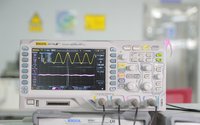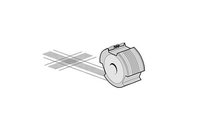What does electrochemical performance testing include?
Date:2023-04-12 14:53:57 Views:4545
Electrochemical performance testing refers to a testing method that determines the electrochemical performance of a substance by testing its electrochemical properties. It can help us understand the electrochemical properties and behavior of a substance and provide valuable reference data for its design and improvement. To help everyone gain a deeper understanding, the following content is organized by Chuangxin Testing Network and provided for your reference.
Usually includes the following aspects:
Electrolytic constant test: Electrolytic constant is an important parameter when a substance undergoes an electrolytic reaction in an electrolyte. By testing the electrolysis constant of a substance, the electrochemical properties and electrolysis performance of the substance can be understood.
Conductivity test: Conductivity is the ability of a substance to conduct electricity in an electric field. By testing the conductivity of a substance, it is possible to understand its conductivity and changes in conductivity.
Polarization curve test: Polarization curve is a curve that describes the polarization phenomenon of a substance in an electric field. By testing the polarization curve, one can understand the polarization properties and polarization effects of substances, as well as their electrochemical behavior in an electric field.
_20230412144611_375.jpg)
Corrosive testing: Corrosive testing refers to a testing method that determines the corrosion performance of a substance by testing its corrosiveness. Corrosive performance is the ability of a substance to damage other substances when in contact with them. By testing the corrosion performance of substances, one can understand their corrosiveness to contact substances and their impact on the environment.
Antioxidant testing: Antioxidant testing refers to a testing method that determines the antioxidant capacity of a substance by testing its antioxidant properties. Antioxidant activity is the ability of a substance to resist oxidation during the oxidation process. By testing the antioxidant properties of substances, it is possible to understand their antioxidant performance and changes in antioxidant performance.
Corrosion resistance test: Corrosion resistance test refers to a testing method that determines the corrosion resistance of a substance by testing its corrosion resistance. Corrosion resistance is the ability of a substance to resist corrosion in a corrosive environment. By testing the corrosion resistance of substances, it is possible to understand their performance in corrosion resistance and the changing patterns of corrosion resistance performance.
In addition to the electrochemical performance testing items mentioned above, there are also some other testing items that can be used to evaluate the electrochemical performance of substances. For example, ion mobility testing can be used to evaluate the conductivity of substances, and surface tension testing can be used to evaluate the wettability of substances. Meanwhile, different testing methods also have their advantages and disadvantages. For example, electrolytic constant testing can accurately measure the electrochemical properties of substances, but the testing time is longer; Conductivity testing and polarization curve testing can quickly evaluate the electrochemical performance of substances, but the test data needs to be analyzed and processed.
The above is an introduction to electrochemical performance testing. If you have any needs in this regard, please feel free to consult Chuangxin Testing! Chemical performance testing is an important means of evaluating the electrochemical performance of substances. At the same time, different testing methods and projects also have their own scope of application and advantages and disadvantages, and suitable testing methods and projects need to be selected according to the specific situation.




 Weixin Service
Weixin Service

 DouYin
DouYin
 KuaiShou
KuaiShou





















